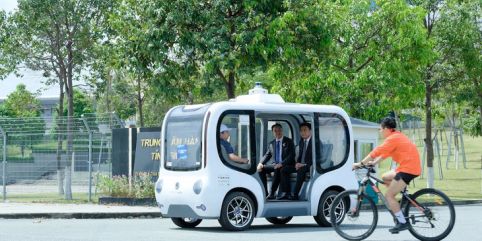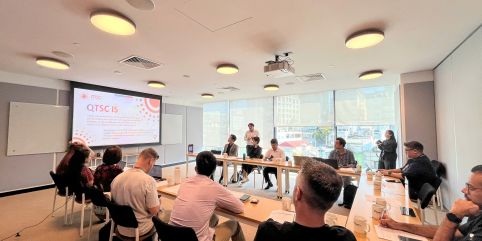HCM City (VNA) – Domestic and foreign experts gathered at the Vietnam Digital Economy Forum 2018 (VDEF 2018) on November 1 to share strategic visions, practical experiences of the sector’s forerunners, and the indispensible trends of modern digital economy.

The event was jointly held by the Association of Vietnamese Scientists and Experts (AVSE Global), Quang Trung Software City, and the Ho Chi Minh City Institute for Development Studies under the theme “Challenges and strategic solutions for small- and medium-sized enterprises (SMEs) in the Fourth Industrial Revolution”.
According to Vu Ngoc Anh, founder of the VDEF, the French Government and large urban areas of Paris, Lyon and Lille have taken the initiative with measures to ensure that small- and medium-sized enterprises become the driving force for economic growth during the digital development process.
The global economy has been radically altered due to the impact of the Fourth Industrial Revolution (Industry 4.0), he said, adding that new economic models have resulted in noticeable shifts within various industries, from telecommunications, entertainment, education, and training, to transportation, distribution, wholesales, and retail sales.
Although digitised models have created benefits for local people, they bear contradictions and fundamental changes in traditional business models, he said, laying stress on the need for rational administrative tools and policies to balance short-term and long-term advantages.
Meanwhile, Andre Laperriere, CEO of the UN Global Open Data on Agriculture and Nutrition (GODAN), said that the GODAN programme has set up cooperative ties with 800 governmental and non-governmental organisations and businesses from 100 countries worldwide.
GODAN wants to work with Vietnam to share its experience in using open data to improve food safety and hygiene, contributing to improving nutritional awareness and reducing diseases among local residents.
In addition, research from the University of Oxford and McKinsay & Company shows that 50 percent of jobs in developing countries will be altertered by automation in the next 15 years. Thus, human resources training has become a more urgent matter if it is to meet the requirements of the digital economy, he said.
Ryan Jacildo, an economist at the Asia Desk of the Organisation for Economic Cooperation and Development (OECD), for his part, said that Vietnam should make changes to its human resources training policies, payment systems, and consumer rights policies that enable them to capitalise on digitisation and maintain the stable and high economic growth which has been achieved in the past time. –VNA
More articles:
Latest news
-
SmartBox automated delivery locker – Convenient, secure, and easy to use
-
Ho Chi Minh City allows controlled testing of self-driving vehicles at QTSC
-
QTSC meets with startup community and investment funds in HCMC: Strengthening connections and support for the science and technology innovation ecosystem
-
Inviting to join the program “Together for a Green QTSC”





 Tiếng Việt
Tiếng Việt










